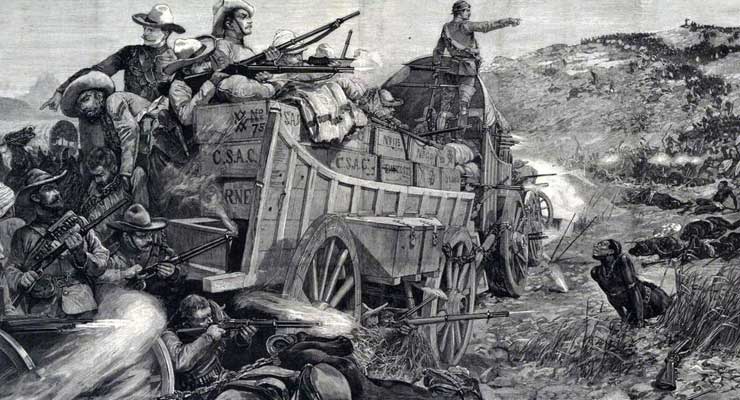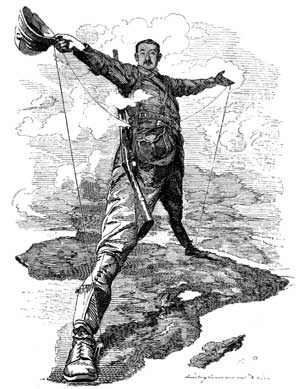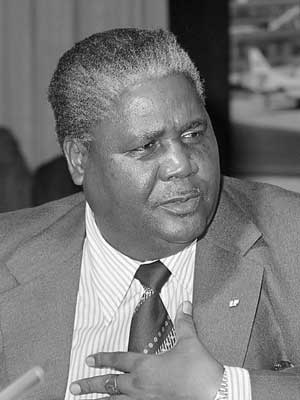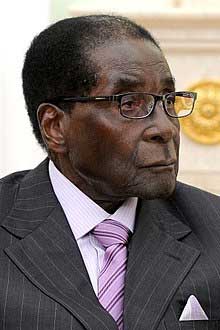
As Zimbabwe celebrates its Independence Day this Wednesday, the annual holiday will come with an added layer of meaning. This marks 38 years since the achievement of hard-fought nationhood. British Crown rule in Zimbabwe dated all the way back to 1896, but by the 1960s it was ended, thanks to the sacrifices of many freedom fighters, who laid down their lives on the line.

Zimbabweans will never forget that on 11 November 1965 the Rhodesia (now Zimbabwe) Prime Minister Ian Smith had made a Unilateral Declaration of Independence (UDI) from Britain declaring that: “I don’t believe in black majority rule ever in Rhodesia in a thousand years.” United Nations backed sanctions were then imposed on Ian Smith government making it difficult for him to source military equipment and hardware. This made his regime more vulnerable although they would occasionally use the then apartheid South Africa as a proxy to acquire modern military equipment.
It was clear then that, despite the many grand statements made to the contrary over the years, the system would not endure forever. Genuine freedom fighters, led by veterans of the struggle like the late Zimbabwe African National Union (ZANU), the late Joshua Nkomo, the late Josiah Tongogara, Robert Mugabe and the late Nikita Mangena among others, had become convinced that the Ian Smith-led Rhodesia government would never willingly give the country even partial self-rule, and began a struggle known as the Second Chimurenga (War) with seven Zimbabwe African National Liberation Army (ZANLA) freedom fighters taking up arms against the colonizers on 28 April 1966. Sadly, all seven were killed by the police.
The end of British colonial rule in 1980 marked the creation of Zimbabwe. Independence Day, on 18 April, is celebrated widely with flags hoisted in schools and colleges, and at government buildings and major landmarks. The nation celebrates its 38th year with numerous events in Zimbabwe and all around the world. On 18 April, flags fly high and the concerts and parades takes place throughout the country, the main festivities takes place at the National Sports Stadium in Harare, with President Emmerson Mnangagwa officiating.

While the 38 years forms the perfect opportunity for a great party, being that it is the first without former president Robert Mugabe who was forced to resign after a coup and impeachment proceedings. It’s also an occasion for contemplation and insight. Zimbabwe’s 38th year of independence offers a chance for people to look back to understand the way the nation emerged, but also to gaze ahead to the future to see what Zimbabwe can still become.
It is important to remember that on the eve of independence in 1980, Robert Mugabe, about to become the first Prime Minister in a democratic Zimbabwe delivered his speech at Rufaro Stadium in Harare that was witnessed by other world leaders and political leaders including Prince Charles who was personally on hand to lower the British (Union Jack) flag whilst the new Zimbabwean flag was hoisted.
On the eve of Independence Day in 1980, Mugabe in his speech noted that: “The final countdown before the launching of the new State of Zimbabwe has now begun.” This holds true today.
“Only a few hours from now, Zimbabwe will have become a free, independent and sovereign state, free to choose its own flight path and chart its own course to its chosen destiny. Its people have made a democratic choice of those who as their legitimate Government, they wish to govern them and take policy decisions as to their future,” he said. In today’s case, the country is free to charter a new course without him on the helm as we have become accustomed to in the past 37 years.

“The march to our national independence has been hazardous one. On this march, countless lives have been lost and many sacrifices made. Death and suffering has been the prize we have been called upon to pay for the final priceless reward of freedom and national independence. May l thank all of you who have had to suffer and sacrifice for the reward we are now getting”, he continued.
Mugabe aptly continued and said: “Tomorrow is thus our birthday, the birth of a great Zimbabwe, and the birth of its nation. Tomorrow we shall cease to be men and women of the future. It’s tomorrow then, not yesterday, which bears our destiny. As we become a new people (without the rule of Robert Mugabe) we are called to be constructive, progressive and forever forward looking for we cannot afford to be men of yesterday, backward looking, retrogressive and destructive. Our new nation requires of every one of us to be a new man, with a new mind, a new heart and a new vision and our hearts a new love that spurns hate and a new spirit that must unite and not divide.”
Yes, Zimbabwe’s removal of Mugabe last year was a tryst with destiny, as the struggle for renewed freedom has already been a long and tiresome one, witnessing the sacrifices of many freedom and democracy fighters, who laid down their lives on the line.
But we must not forget that there is a long road ahead with poverty and with employment hovering over 80 percent, both endemic. Cash shortages, a galloping domestic debt of US$6 billion, paralyzed health care, education, and road networks all need require urgent attention. The lives of many Zimbabweans mainly depend on agriculture, so there is need to return to the highly efficient and labor-intensive use of land to restore production of maize, wheat, tobacco and gold and other minerals. This will increase job opportunities in rural areas, and also increase export receipts.
As Mugabe said, “tomorrow is thus our birthday, the birth of a great Zimbabwe, and the birth of its nation.”
Leave a Reply